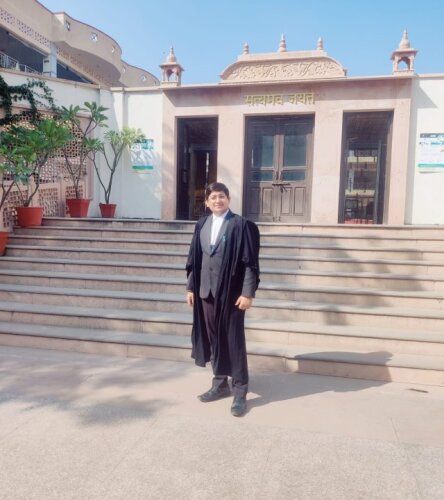Best Father's Rights Lawyers in India
Share your needs with us, get contacted by law firms.
Free. Takes 2 min.
Free Guide to Hiring a Family Lawyer
Or refine your search by selecting a city:
List of the best lawyers in India
About Father's Rights Law in India
Father's Rights Law in India pertains to the legal rights and responsibilities of fathers, particularly in the context of custody, visitation, and child support. Traditionally, the Indian legal system has favored mothers in custody cases under the assumption of the best interest of the child standard. However, there is a growing recognition of the role fathers play in their children's lives, prompting reforms and a more balanced approach in custody and family law cases.
Why You May Need a Lawyer
Individuals may require legal assistance in various situations related to Father's Rights, such as:
- Seeking custody or visitation rights during a divorce or separation.
- Challenging a court order that restricts a father's access to his child.
- Seeking a fair arrangement in terms of child support and financial responsibilities.
- Understanding the legal implications of paternity and establishing paternity rights.
- Addressing false allegations that may affect custody or reputation.
Local Laws Overview
In India, key laws relevant to Father's Rights include:
- Guardians and Wards Act, 1890: This law allows both parents to be natural guardians of a minor child. However, typically the mother gets preference for the custody of a child below a certain age.
- Hindu Minority and Guardianship Act, 1956: Under this act, a father is deemed the natural guardian of a child, but the welfare of the child is considered paramount.
- Family Courts Act, 1984: Establishes family courts with the aim of facilitating prompt resolution of family disputes.
- Maintenance and Welfare of Parents and Senior Citizens Act, 2007: Obligates children to provide maintenance to parents, impacting financial responsibilities.
Frequently Asked Questions
Do fathers have equal rights as mothers in custody cases?
While Indian law aims for fairness, there is still a perception of bias towards mothers, especially for young children. Courts generally decide based on the child's best interest.
Can a father get custody of a child under five years old?
Though mothers often have custody of very young children, fathers can obtain custody if they prove it is in the child’s best interest.
What are the rights of unmarried fathers?
Unmarried fathers must establish paternity to gain custody or visitation rights. Legal processes are available to assert these rights.
How can fathers establish paternity?
Paternity can be established voluntarily through acknowledgment or through DNA testing if contested.
Can a father seek visitation rights if denied access?
Yes, a father can file a petition in the family court to seek visitation rights if they are being unjustly denied by the other parent.
What is shared custody?
Shared custody is an arrangement wherein both parents have significant periods of physical custody, aimed at ensuring the child's time with both parents.
What role does the child's opinion play in custody decisions?
The court may consider a child's preference if they are old enough, but the ultimate decision is based on the child’s welfare.
How does relocation affect existing custody arrangements?
Relocation requires the consent of both parents or a court order if it affects the existing custody or visitation arrangement.
Can fathers claim maintenance from mothers?
In exceptional cases where the mother is financially more capable, fathers can claim child maintenance, though this is less common.
What legal recourse is available for false allegations impacting custody?
Fathers can seek legal intervention to contest false allegations. Courts may penalize the parent making unfounded claims.
Additional Resources
Those seeking assistance on Father's Rights in India may find the following resources helpful:
- National Legal Services Authority (NALSA): Offers free legal services and advice.
- Family Counselling Centers: Provides mediation and support services for family disputes.
- Lawyers Collective: A resource for seeking dedicated legal assistance.
- Council for Social Development: Provides interactions and discussions on family welfare.
Next Steps
If you need legal assistance in matters regarding Father's Rights, consider the following steps:
- Consult with a family law attorney specializing in Father's Rights.
- Visit a family counseling center if you prefer a non-legal approach initially.
- Keep detailed records of all interactions and communications concerning your child's custody or visitation, which can be useful in legal proceedings.
- Engage with support groups or communities for emotional and practical support.
- Explore mediation as a potential avenue for resolving disputes outside the courtroom.
Lawzana helps you find the best lawyers and law firms in India through a curated and pre-screened list of qualified legal professionals. Our platform offers rankings and detailed profiles of attorneys and law firms, allowing you to compare based on practice areas, including Father's Rights, experience, and client feedback.
Each profile includes a description of the firm's areas of practice, client reviews, team members and partners, year of establishment, spoken languages, office locations, contact information, social media presence, and any published articles or resources. Most firms on our platform speak English and are experienced in both local and international legal matters.
Get a quote from top-rated law firms in India — quickly, securely, and without unnecessary hassle.
Disclaimer:
The information provided on this page is for general informational purposes only and does not constitute legal advice. While we strive to ensure the accuracy and relevance of the content, legal information may change over time, and interpretations of the law can vary. You should always consult with a qualified legal professional for advice specific to your situation.
We disclaim all liability for actions taken or not taken based on the content of this page. If you believe any information is incorrect or outdated, please contact us, and we will review and update it where appropriate.
Browse father's rights law firms by city in India
Refine your search by selecting a city.

















